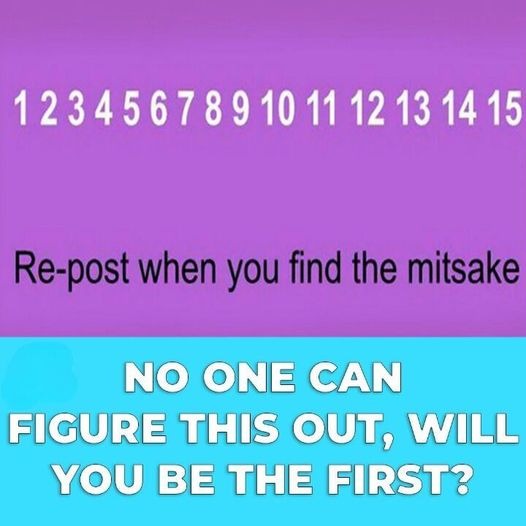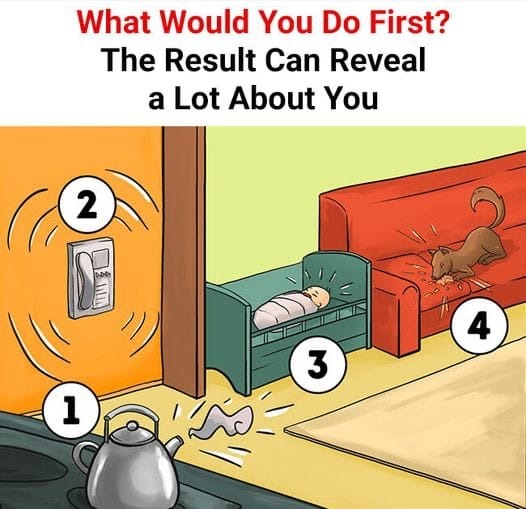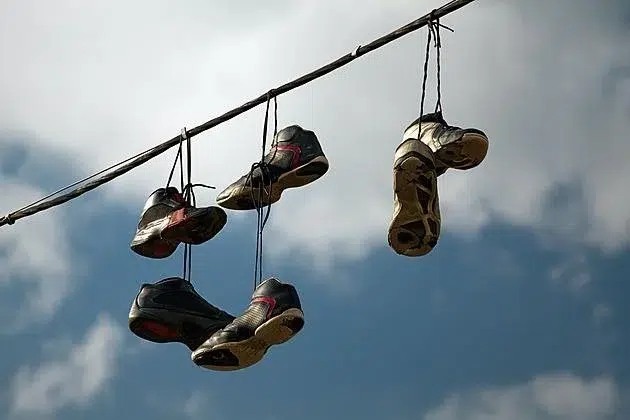Puzzles have always intrigued people from all walks of life, and it’s clear why. They come in various forms, from easy ones to those that are incredibly tough. Some remain unsolved, sparking endless fascination among puzzle enthusiasts who love a good challenge.
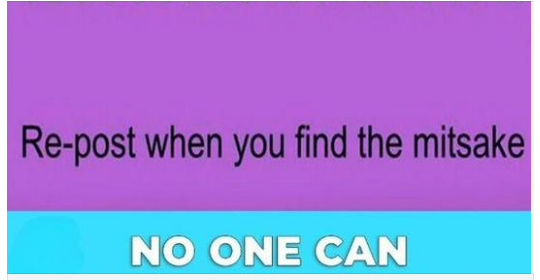
But you don’t have to be a puzzle lover to enjoy their benefits. Solving puzzles is like giving your brain a good workout, keeping it sharp and flexible. It helps train your mind to approach problems from different perspectives and promotes creative thinking to find solutions.
The Puzzle that Stumped the Internet
There’s one particular puzzle that has puzzled the internet, leaving many people scratching their heads. At first look, it appears to be a simple picture of numbers from 1 to 15 neatly arranged. The challenge is to find the mistake and share the image. Sounds easy, right?
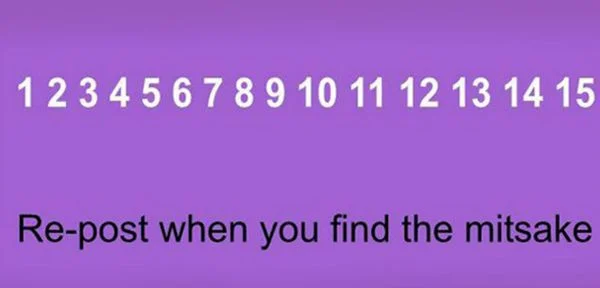
But as you search for the mistake, you’ll notice something odd. The numbers are all there, with none missing or out of order. You’ll closely check for any hidden patterns or sequences but find nothing. They seem perfect.
At this point, you start thinking outside the box. Maybe the mistake is that zero is missing? Or should there be a number sixteen? Or is it another kind of error? You examine everything, from the spacing to the shapes of the numbers, but the answer still escapes you.
Then, it hits you. The mistake isn’t in the numbers—it’s in the sentence below asking you to find the ‘mitsake’ instead of the mistake. Clever, right? Many people focus so intently on the numbers that they completely overlook the misspelled word.
The Lesson of the Puzzle
This puzzle teaches us a valuable lesson – sometimes, to find the solution, we need to look at the bigger picture. We can become so absorbed in details that we miss the obvious. By training our minds to see beyond the surface, we become better problem solvers.
The Far-Reaching Benefits
The benefits of solving puzzles are extensive. Research shows that puzzles help improve memory, particularly short-term memory. They challenge our brains to think quickly, enhancing mental processes and strengthening the connections between brain cells.
Moreover, puzzles hone our analytical skills. They require logical, critical thinking and creativity. Like the earlier puzzle, they teach us to analyze the complete picture and think outside the box. These skills are useful in daily life, helping us tackle problems without clear solutions.
In fact, the ability to think analytically is highly prized in the workplace. It distinguishes individuals, making them stand out in areas like management and leadership. Cultivating the habit of solving puzzles can equip us with these essential skills.
So, next time you encounter a puzzle, take a moment to embrace the challenge. Whether it’s a crossword, Sudoku, or a tricky riddle, you’ll be exercising your brain and gaining numerous benefits. Happy puzzling!
